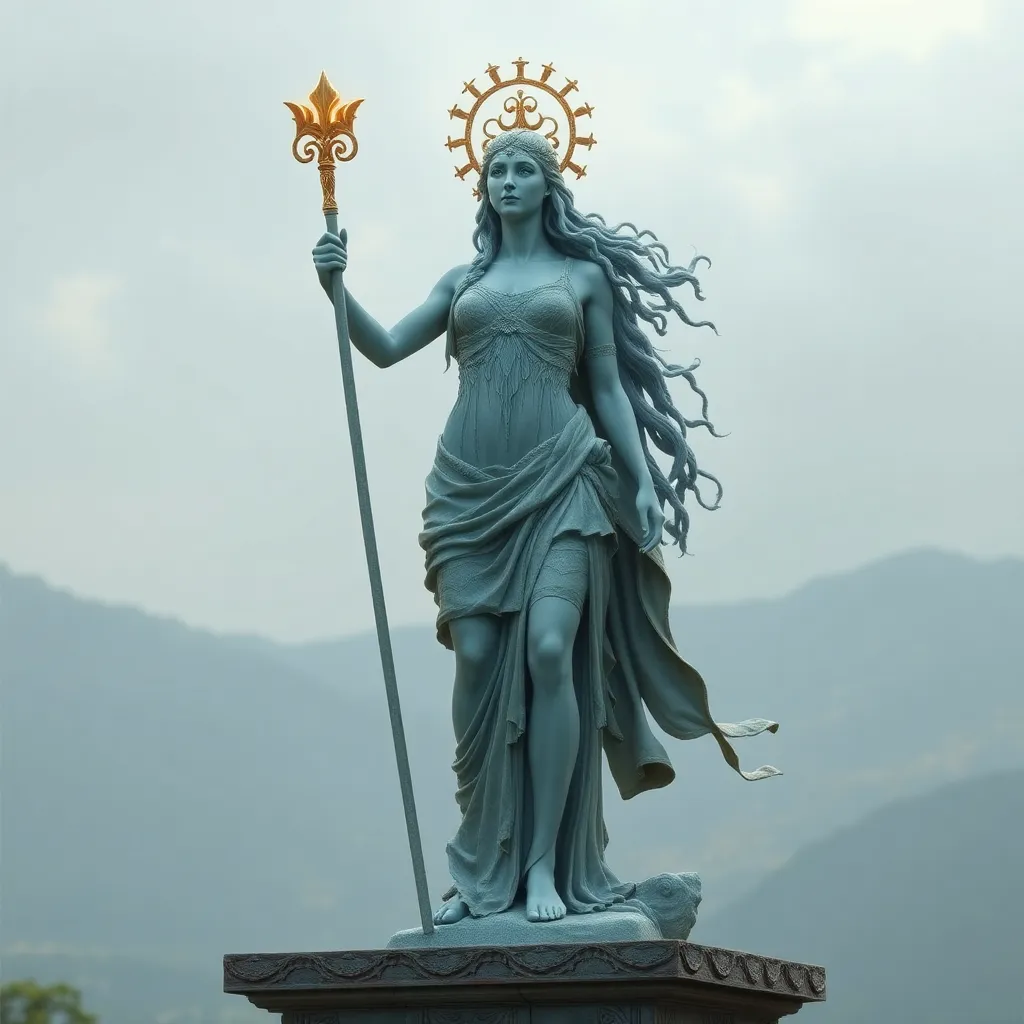Hera’s Influence on the Concept of Female Archetypes in Mythology
I. Introduction
In the rich tapestry of Greek mythology, Hera stands out as one of the most prominent and complex deities. Known primarily as the queen of the gods, she embodies multiple aspects of femininity and serves as a vital figure in understanding female archetypes throughout history. The exploration of Hera’s character reveals not only her individual significance but also illustrates the importance of female archetypes in cultural narratives, shaping perceptions of womanhood across generations. This article aims to delve into Hera’s influence on female archetypes, examining her roles, relationships, and the broader implications of her character in mythology and society.
II. Hera: The Queen of the Gods
Hera, the daughter of the Titans Cronus and Rhea, holds a significant place in the Greek pantheon. As the goddess of marriage and family, she is often depicted as a dignified and powerful figure, embodying the ideals of womanhood in ancient Greece.
- Historical context of Hera’s character: Hera’s character is deeply rooted in ancient Greek culture, where she was worshipped in various forms and represented both the sanctity of marriage and the complexities of female power.
- Her roles and responsibilities in the pantheon: As the wife of Zeus, she presides over the heavens, overseeing matters of fidelity and the domestic sphere, which are crucial to Greek social structure.
- Symbolism associated with Hera: Often symbolized by the peacock, Hera represents beauty, pride, and the multifaceted nature of femininity.
III. The Archetype of the Wife and Mother
Hera is frequently portrayed as the archetype of the devoted wife and mother. Her relationship with Zeus, filled with both loyalty and turmoil, serves as a complex narrative of love, betrayal, and resilience.
- Hera as the archetype of the devoted wife: Despite Zeus’s numerous infidelities, Hera remains a powerful figure who demands respect and loyalty.
- Exploration of her relationship with Zeus: Their tumultuous marriage reflects the struggles of power dynamics within relationships, showcasing Hera’s strength in the face of adversity.
- Implications of motherhood in her character: Hera’s role as a mother to Ares, Hebe, and Hephaestus highlights her nurturing side, while also emphasizing the challenges women face in balancing maternal duties with personal ambitions.
IV. The Vengeful Goddess Archetype
While Hera is celebrated as a devoted wife, she is equally known for her vengeful nature, particularly towards Zeus’s lovers and illegitimate offspring.
- Hera’s role in the punishment of Zeus’s lovers and offspring: Hera’s wrath is often directed at those who threaten her marital bond, leading to significant consequences for both mortals and demigods.
- Examination of her vengeful nature: This vengefulness can be seen as a response to her own pain and betrayal, reflecting the complexities of female emotions in mythology.
- Impact on the perception of women in mythology and society: Hera’s actions contribute to a narrative that often portrays women as either nurturing or vengeful, influencing societal views on femininity.
V. The Protector of Women and Marriage
Hera’s role extends beyond that of a vengeful wife; she is also seen as a protector of women and the institution of marriage.
- Hera’s role as a protector of marriage and fidelity: As the goddess of marriage, she embodies the ideals of loyalty and commitment, often intervening to protect the sanctity of marriage.
- Her influence on marital dynamics in mythology: Hera’s interventions in various myths highlight the importance of fidelity and the challenges faced by women in patriarchal societies.
- Reflection of these themes in modern interpretations: Contemporary literature and media often draw on Hera’s protective qualities, reinterpreting her character in ways that resonate with modern audiences.
VI. Comparison with Other Female Archetypes in Mythology
To fully appreciate Hera’s unique position, it is essential to compare her with other female archetypes in mythology, such as Demeter and Athena.
- Contrasting Hera with figures like Demeter and Athena: While Demeter embodies motherhood and fertility, and Athena represents wisdom and warfare, Hera’s complexities blend these aspects with themes of loyalty and revenge.
- Common themes and divergences in female archetypes: All three goddesses reflect different dimensions of femininity, from nurturing to strategic thinking, showcasing the diverse roles women can embody.
- The evolution of these archetypes through time: Over the centuries, the narratives surrounding these goddesses have evolved, reflecting changing societal attitudes towards women.
VII. Modern Interpretations of Hera’s Archetype
In contemporary culture, Hera’s archetype continues to inspire and provoke thought regarding women’s roles in society.
- Representation of Hera in contemporary literature and media: Hera is often reimagined in novels, films, and television series, portraying her as a multifaceted character who embodies both strength and vulnerability.
- Influence on feminist discourse and modern female archetypes: Hera’s story has become a point of reference in feminist discussions, highlighting the struggles women face in asserting their identities within patriarchal frameworks.
- Analysis of Hera’s enduring legacy in popular culture: From adaptations in graphic novels to her portrayal in blockbuster films, Hera’s character resonates with audiences, reflecting ongoing discussions about gender roles and power dynamics.
VIII. Conclusion
Hera’s influence on female archetypes in mythology is profound and multifaceted. As a representation of the devoted wife, the vengeful goddess, and the protector of marriage, she encapsulates the complexities of womanhood and the challenges women face in a patriarchal society. Understanding these archetypes is crucial in reflecting on gender roles and societal expectations, both in ancient times and in contemporary society. Hera’s story remains relevant today, reminding us of the enduring power of female narratives and the importance of recognizing the diverse experiences of women throughout history.




